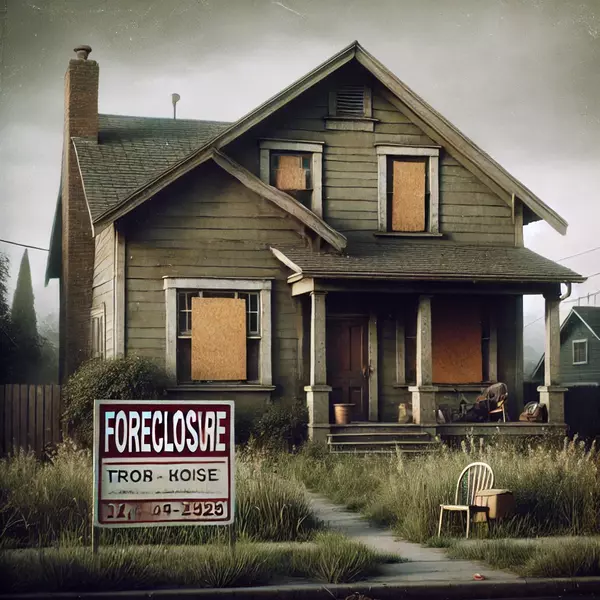All About Doing an Estate Sale: A Comprehensive Guide

An estate sale is a unique event that often occurs under specific circumstances, such as the passing of a loved one, downsizing, or moving to a new home. Unlike a garage sale, which typically involves selling items no longer needed, an estate sale often involves selling a large portion or the entirety of a household's belongings. This guide will walk you through the essentials of organizing an estate sale, providing tips on preparation, pricing, and conducting the sale successfully.
What is an Estate Sale?
An estate sale, sometimes called a tag sale, is a public or private sale of the contents of a home. It can include everything from furniture, artwork, and collectibles to kitchenware, clothing, and personal items. Estate sales are usually conducted by professional estate sale companies, but some homeowners may choose to handle the process themselves. The goal of an estate sale is to sell items quickly and efficiently, often over the course of a few days.
Reasons for Holding an Estate Sale
There are several reasons why someone might decide to hold an estate sale, including:
-
Downsizing: When moving to a smaller home or a retirement community, an estate sale can help reduce the number of belongings and generate some extra cash.
-
Divorce: In cases of divorce, an estate sale can help in liquidating shared assets and dividing the proceeds.
-
Moving: Relocating to a new area, especially across the country, can make it impractical to move all belongings. An estate sale can ease the transition by selling items that won't be needed in the new home.
-
Debt Relief: For individuals facing financial difficulties, an estate sale can provide a way to quickly raise funds by selling off assets.
-
Death of a Loved One: After the passing of a family member, an estate sale can help in managing the distribution of their belongings, especially if there are many items to go through or if the home needs to be sold.
Steps to Organize a Successful Estate Sale
-
Decide Whether to Hire a Professional: One of the first decisions to make is whether to hire a professional estate sale company or handle the sale yourself. Professionals have experience in pricing, organizing, and marketing the sale, and can handle the logistics, making the process less stressful. If you choose to go it alone, be prepared for a significant time investment.
-
Inventory and Categorize Items: Before the sale, take a complete inventory of all items in the home. This will help in organizing the sale and deciding what to keep, sell, or donate. Group similar items together, such as kitchenware, furniture, or collectibles, to make the sale more organized and appealing to buyers.
-
Research and Price Items Appropriately: Pricing is crucial to a successful estate sale. Research the value of items using online marketplaces like eBay, antique stores, and other resources. Be realistic about pricing; while some items may hold sentimental value, it's important to set prices that will attract buyers and ensure items sell.
-
Prepare the Home: Clear out any personal items and clutter to make the home presentable. Arrange items neatly, and ensure the home is clean and safe for visitors. Use tables, shelves, and display cases to showcase items attractively.
-
Advertise the Sale: Effective advertising is key to drawing a crowd. Use online platforms like Craigslist, Facebook Marketplace, and local classifieds to promote the sale. Additionally, consider placing signs in the neighborhood and posting flyers in community centers or local businesses.
-
Set Up and Staff the Sale: On the day of the sale, have everything organized and ready to go before the start time. Ensure there are enough staff or volunteers to manage different sections, handle transactions, and answer questions. Having a few people available to help will make the sale run smoothly and deter potential theft.
-
Conduct the Sale: Be prepared to negotiate with buyers, especially on the last day of the sale when you want to clear out as many items as possible. Consider offering discounts as the sale progresses to encourage purchases. Keep track of sales and handle money securely, ideally with a cash box and someone designated to manage transactions.
-
After the Sale: Once the sale is over, decide what to do with any remaining items. You can donate them to charity, offer them to family and friends, or arrange for a clean-out service to remove anything left behind. Make sure to also settle accounts with any hired professionals, including the estate sale company, if applicable.
Tips for a Successful Estate Sale
- Be Realistic About Value: Understand that not all items will sell for high prices, even if they hold sentimental value. Be willing to negotiate and accept reasonable offers.
- Provide Ample Parking and Clear Directions: Ensure there is enough parking for attendees and that directions to the sale are clear and easy to follow.
- Secure Personal and High-Value Items: Lock away or remove any personal or high-value items you do not wish to sell to avoid confusion or theft.
- Use Quality Photos in Advertisements: High-quality photos of key items can attract more buyers and generate interest in your sale.
Conclusion
An estate sale can be a valuable way to manage the sale of a large number of items, whether due to downsizing, moving, or other life events. By following these steps and tips, you can organize a successful estate sale that not only clears
Categories
Recent Posts










GET MORE INFORMATION

Agent | License ID: 10401364161, 2298786

